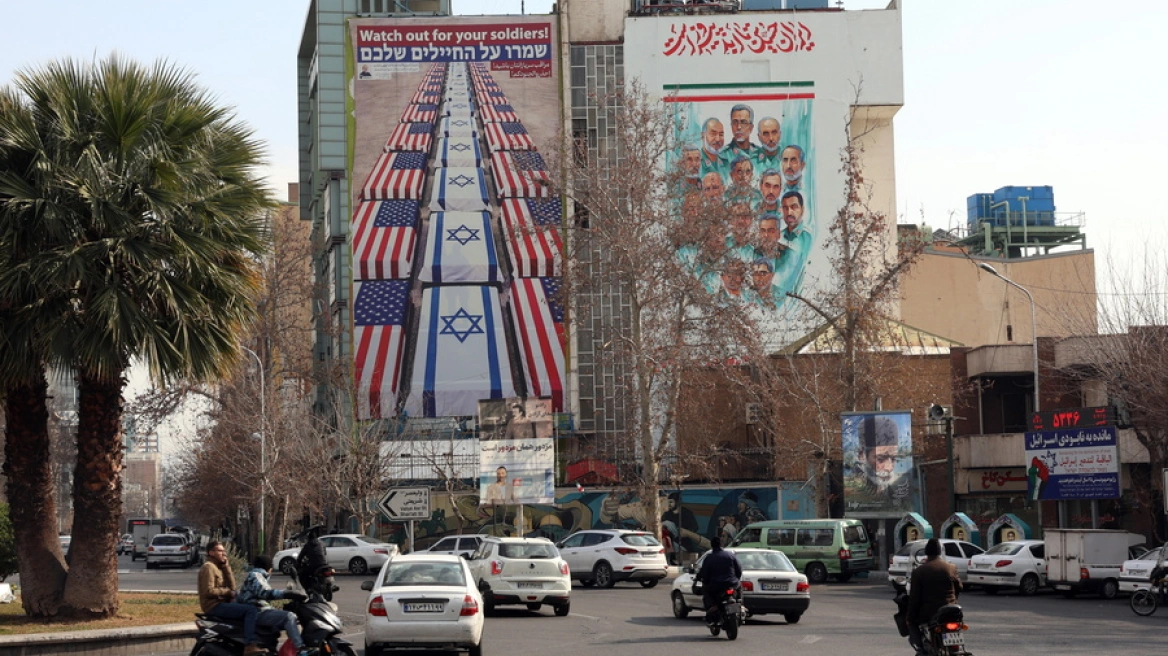With good weather and the thermometer showing 37 degrees Celsius, people will go to the polls today to vote for the European elections, while there is a possibility of local rain in the afternoon in the mainland mountains, especially in the north.
However, from tomorrow the temperature will start to rise and according to meteorologists the first heatwave of the summer is coming.
The week is expected to start with temperatures that will exceed 40 degrees Celsius, while from Wednesday to Friday the heat wave will peak.
In particular, according to the forecast of the director of the National Meteorological Service, Thodoris Kolydas, tomorrow Sunday, the day of the European elections, temperatures will be the same as on Saturday, with the only difference being that the winds will weaken.
“From Monday, the temperature will gradually rise. In Athens the temperature will not exceed 36 to 38 degrees Celsius.
As Mr. Kolydas pointed out, the highest temperatures on Tuesday are expected to occur in the following areas:
– Farsala
– Thebes
– Livadia
In the basin the temperature will reach 38 degrees Celsius.
At the same time, as explained by the director of EMY, the data we have from Wednesday onwards are not yet safe, however, minimum temperatures are expected to increase. “From Wednesday we expect minimum temperatures to rise. Wednesday to Friday will keep the heat wave going, and we will have heat in the evening as buildings will not be able to dissipate heat due to the heat,” he concluded.
Marousakis: 40 to 42 degrees maximum temperatures
Meanwhile, in a post by meteorologist, Klearchos Marousakis, stresses that temperatures will reach up to 42 degrees Celsius. It is typical, as Mr. Marousakis notes, that these temperatures are 8-10 degrees higher than the usual for the season.
The phenomenon will decelerate from Friday onwards. However, he stresses that the weather will remain warm, with higher than usual temperatures for the season.
His post is accompanied by a chart of temperatures:
The post of Mr Marousakis is detailed:
“A fairly stable picture has begun to form according to the latest forecast data.
In the temperature chart we have processed you can read the conclusions we have come to by studying the meteorological data available to us.
This is not an extreme or unprecedented event, and the peak of this episode does not seem to be of long duration (we estimate it to be about three days).
Thatraphyllias: The areas with the highest temperatures
At the same time, as George Tsatrafillas says in his post, due to the high temperatures and the phenomenon of the “urban heat island” some urban centers in the coming days will receive high thermal pressure (not unprecedented) such as Orestiada, Serres, Larissa, Larissa, Trikala, Livadia, Livadia, Chalkida, Athens, Piraeus, Lamia, Argos, Sparta, etc.
More specifically, as it says “The intense heat (Sunday – Monday) will be followed by a three-day heat wave (Tuesday – Wednesday – Thursday) and then will be followed by intense heat (Friday – Saturday – Sunday).
Kallianos: Libas coming from Tunisia, Algeria and Lebanon
As meteorologist Yannis Kallianos says in his post, Greece in the next few hours will turn into “hell on earth” as warm masses from Tunisia, Algeria and Lebanon are expected to invade our country at the same time, pushing the temperature above 44 degrees!
As the meteorologist notes in his post. Whether the thermometer will not reach 44°C or even exceed 44°C is something no one can speak about with certainty at this time. By Sunday I think the forecast landscape will have fully cleared up.”
Unseasonably high temperatures were recorded in the country on Saturday 08/06. According to the recordings of the meteo.gr National Observatory of Athens network of automatic weather stations, the maximum temperature was 37.9 °C in Trikala. The table shows the 8 stations of the network that recorded the highest temperatures on Saturday 08/06.
Tasos Birsim: The Mastermind Behind Andreas Papandreou’s Electoral Campaigns Has Passed Away
The weather today
Initially sunny with only local clouds in the mountainous mainland, which will be increasing in the afternoon and afternoon, with sporadic showers or thunderstorms of short duration. Dust concentrations in the atmosphere will be relatively high.
The temperature in Western Macedonia will range from 15 to 31 degrees Celsius, in the rest of Macedonia and Thrace from 18 to 35, in Epirus from 17 to 33, in Thessaly from 20 to 36, in Sterea and Peloponnese from 19 to 36, in the Ionian islands from 17 to 32, in the North Aegean islands from 21 to 34, in the East Aegean islands from 24 to 36, in the Cyclades from 22 to 31, in the Dodecanese from 21 to 32 and in Crete from 23 to 33 degrees Celsius.
The winds in the Aegean will blow from northwestern directions mainly from 3-4 Beaufort, and in the East and South Aegean occasionally up to 5 Beaufort. In the Ionian Sea the winds will blow from northern directions 2 to 3 Beaufort.
Ask me anything
Explore related questions





